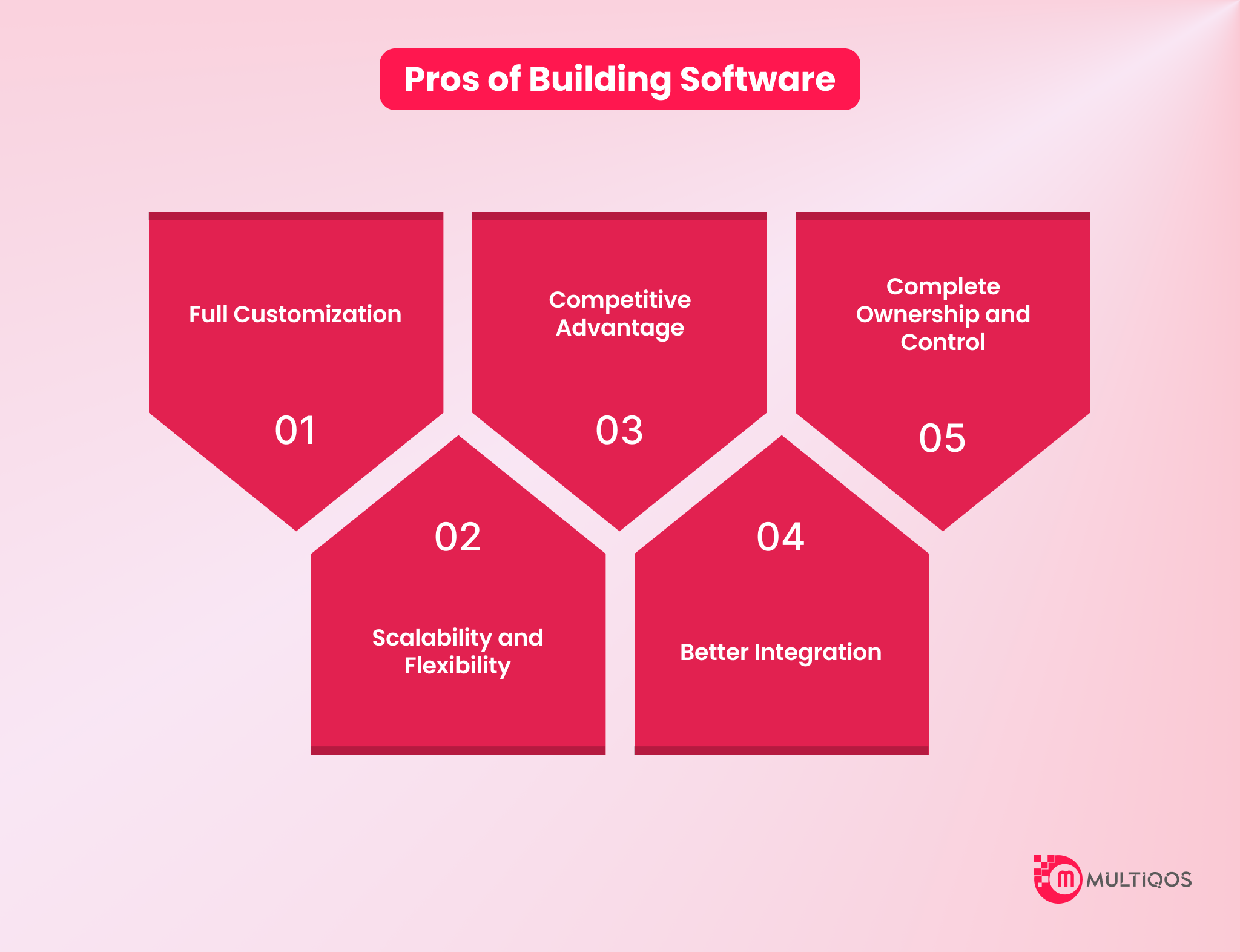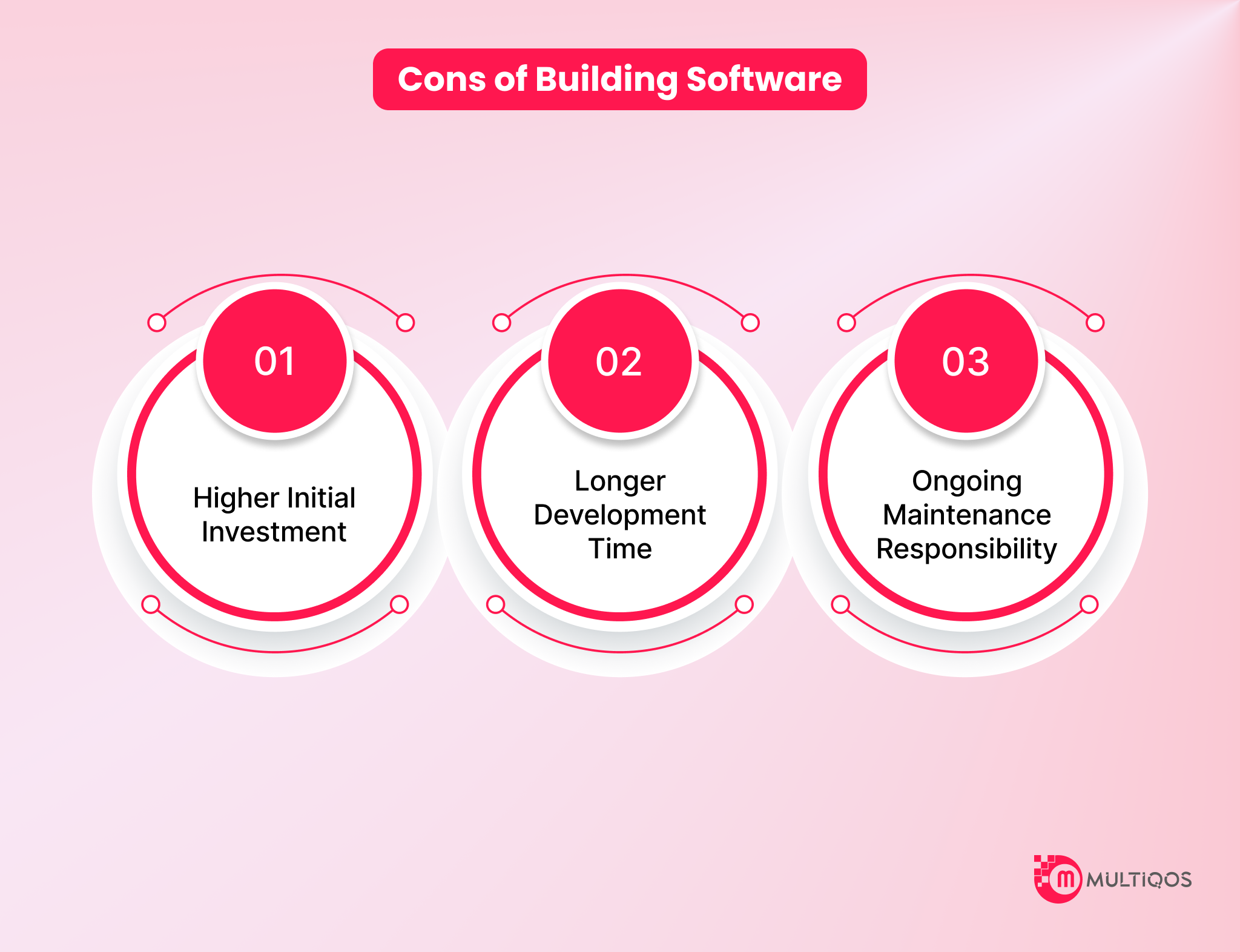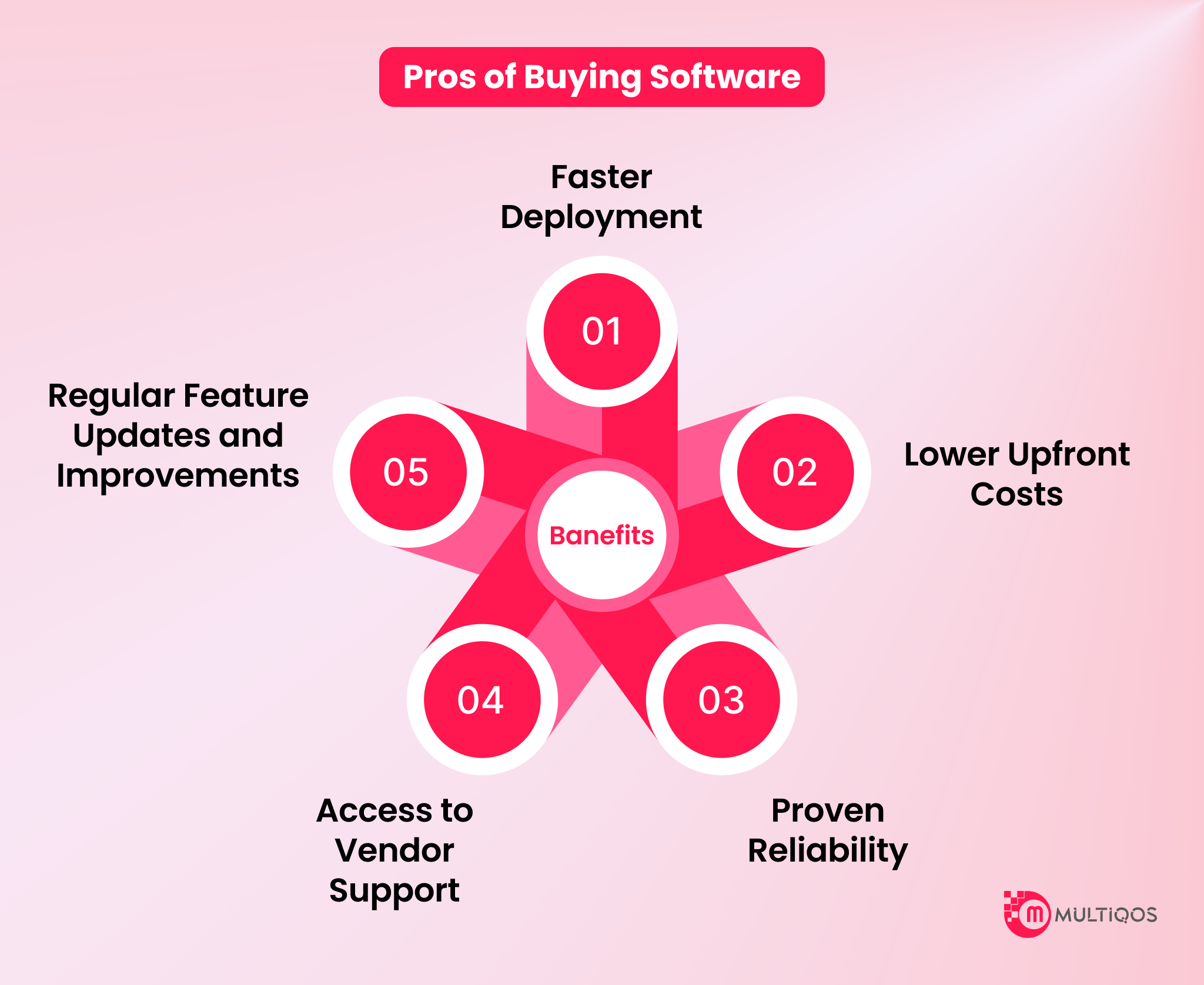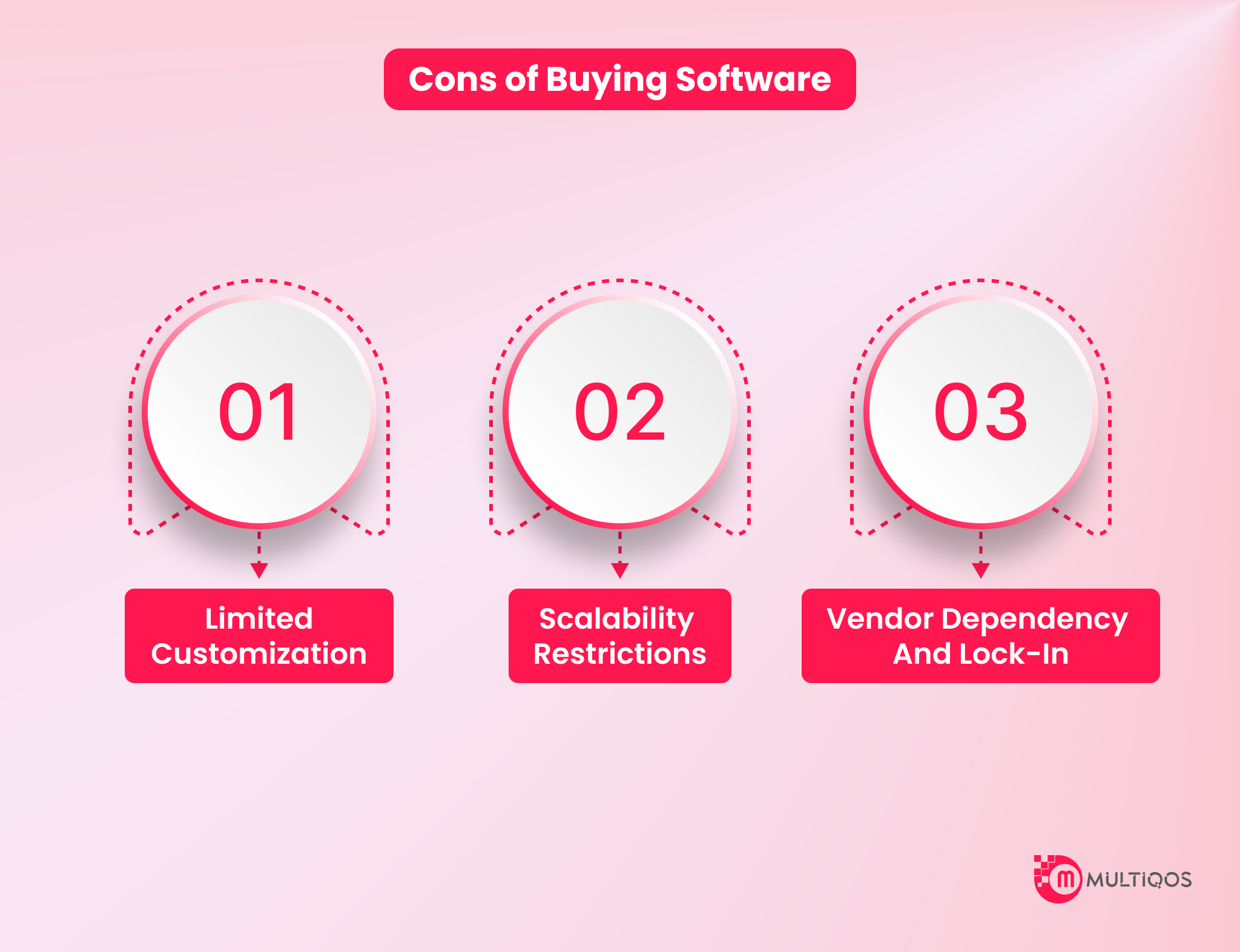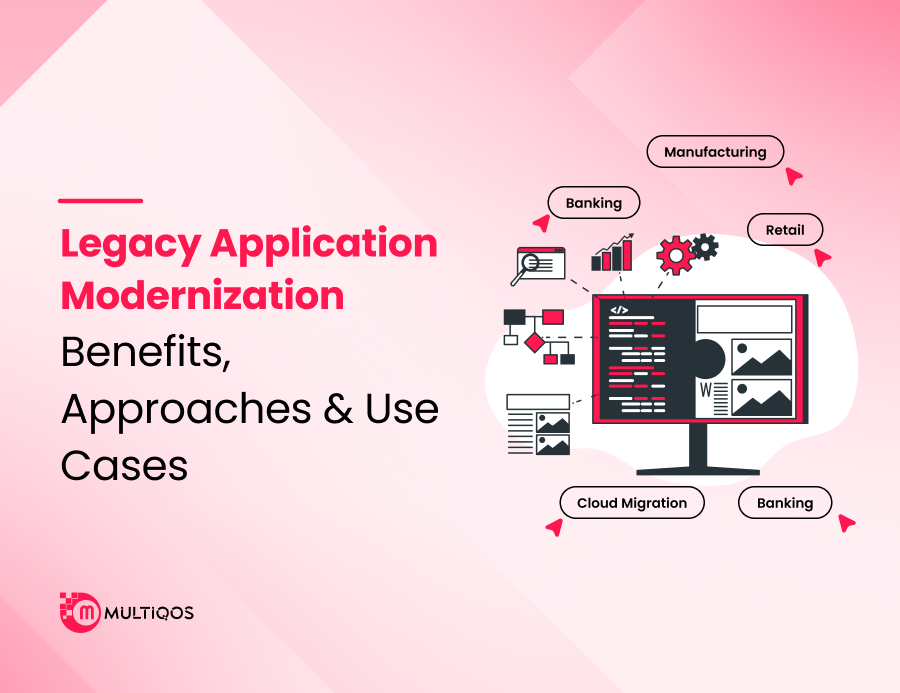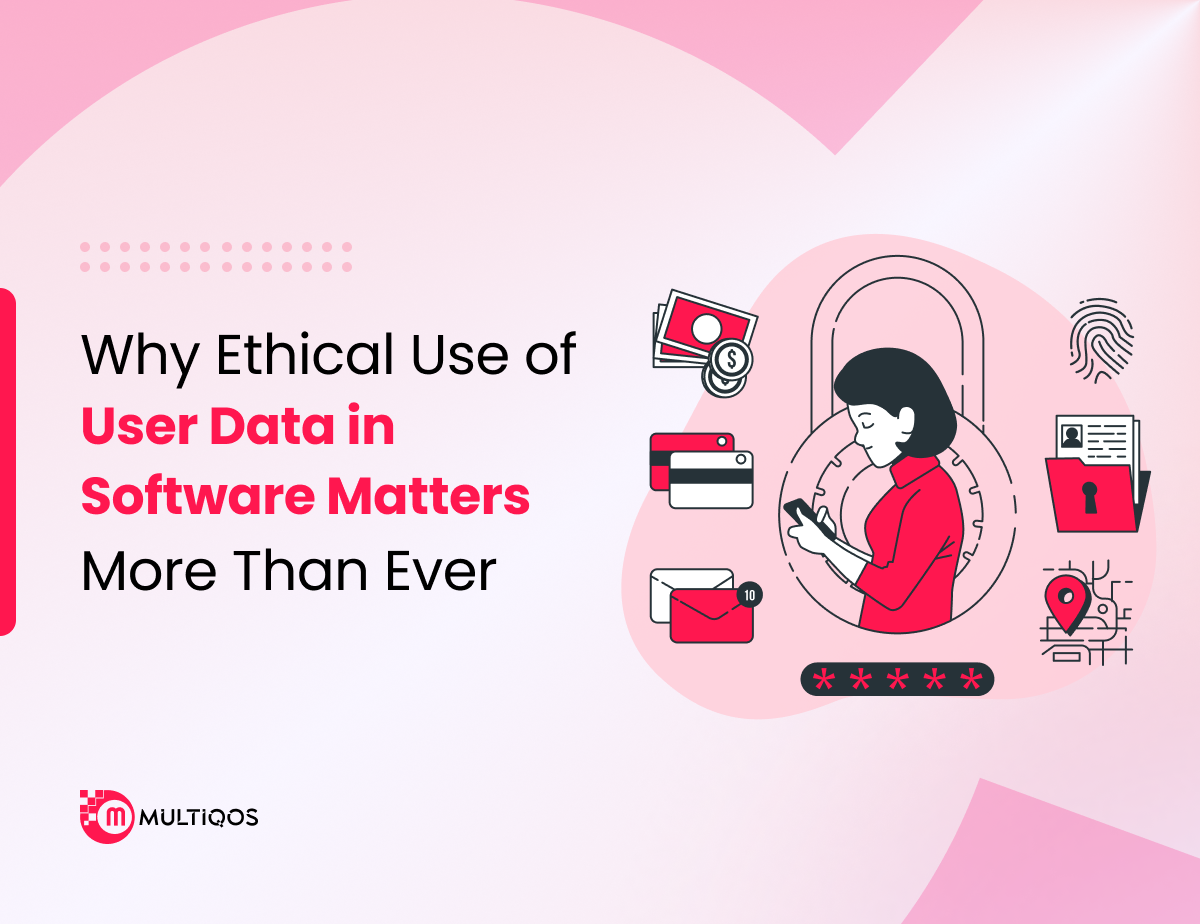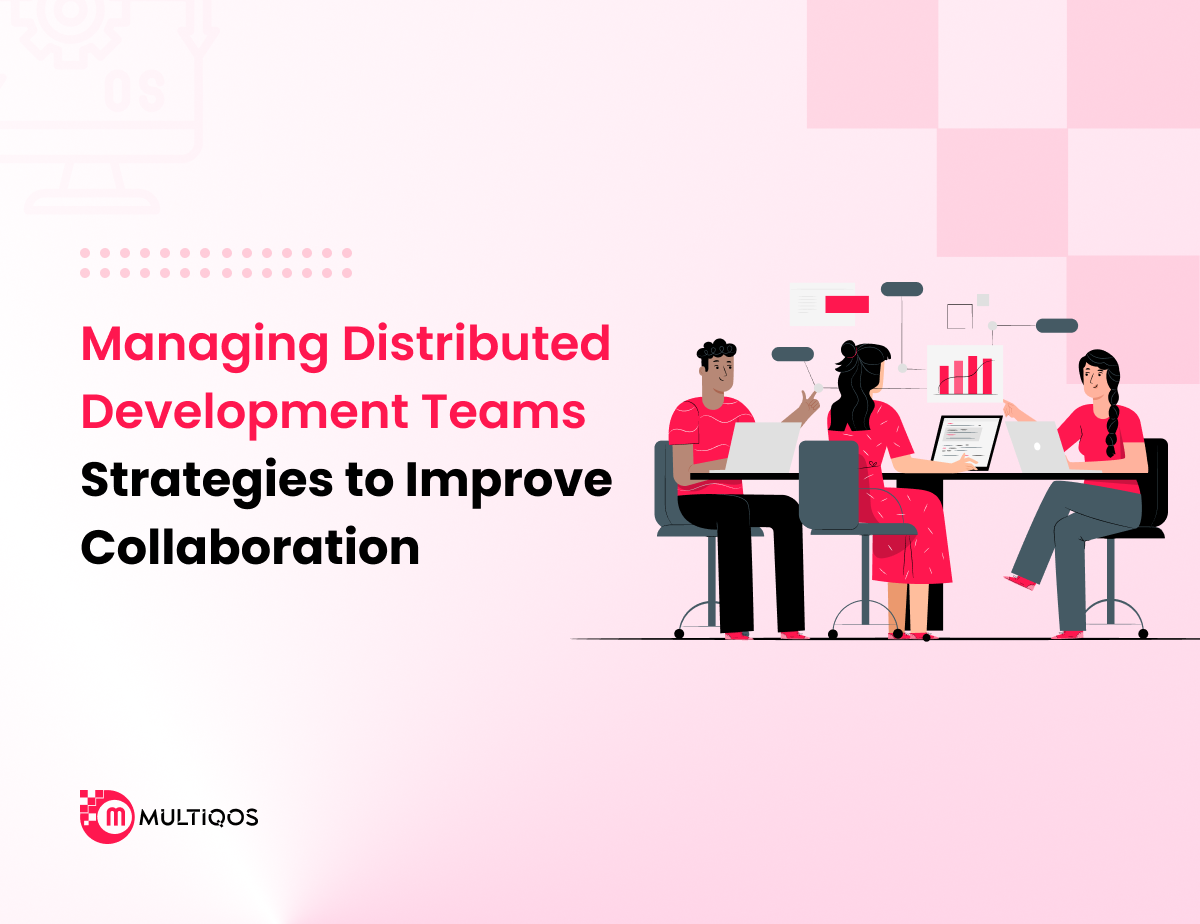Build vs Buy Software: How to Make the Right Choice for Your Business

Summary
When deciding between building or buying software for your business, it’s important to weigh the pros and cons of each option. Building custom software offers flexibility and can be tailored to your specific needs, but it requires significant time, effort, and resources.
Buying pre-built software is quicker and more cost-effective, but it may not perfectly align with your business requirements. Consider factors like your budget, timeline, and long-term goals to make an informed choice. Ultimately, understanding the unique needs of your business will guide you to the best solution for sustainable growth.
Introduction
Choosing the right software solution for your business is an important decision that can have a long-term impact on your efficiency and development. The debate between build vs buy software sometimes leave businesses torn when it comes to choosing the one that align with their needs; a customized solution or buying a tailor-made product that guarantees a quick setup and requires minimal investion in the early stages.
Whether you choose to build a software or buy one, each has its own benefits and challenges, so the right choice is based on your unique business needs and demands. In this blog, we will discover big ideas to help your business make the best decisions. Let’s dive!
What Does “Build” and “Buy” Software Mean?
Build vs Buy software refers to the decision-making process of businesses when customizing software is developed internally (“building”) or buying a solution prepared by a seller (“buy”). Building software provides better adjustment and updates, and more control over facilities with specific business requirements. Although it demands enough time, resources, technical expertise, and consistent maintenance efforts. Whereas, on the other side, buying software can be affordable in the long term, but it might have some restrictions when it comes to integration and adaptability.
For companies still figuring out the best between build vs buy software, hiring the best software development services can surely help you understand the dilemma and guide you. Working with a leading service provider can eliminate the development burden by offering expert guidance, scalable solutions, and flexible methods. Whether you bend towards adapted development or integrate the tool off the shelf will consider long-term business goals, budget shortages, and technical abilities to help determine the best approach.
Pros and Cons of Building Software
Before choosing between build vs buy software, ensure that it not only comes with benefits, but also some development challenges when it comes to creating customized solutions. The building software provides its flexibility and control, but also comes with its set of cons and responsibilities.
Pros of Building Software
- Full Customization:
Software creation from scratch allows you to tailor all features to your specific business needs. Unlike solutions on the shelf, you can prioritize tasks that mean most to your users and can eliminate unnecessary ones.
- Scalability and Flexibility:
Custom software can develop as soon as your business grows. You can easily customize your features and functionality depending on your needs. Apart from that, it becomes easy to personalize scale, infrastructure, and workflow without limiting the vendors’ roadmap.
- Competitive Advantage:
Developing a unique solution can separate your business in the market. You get tools that are specially tailored to your operation, which allows you to distribute better services or products than competitors using a generic system.
- Better Integration:
A customized solution can be designed to integrate with your existing system and third-party tools. This leads to steady operation, reduces manual work, and better data stability in platforms.
- Complete Ownership and Control:
To own the software and all intellectual property, means building a customized software. It offers complete control over your features, new updates, user data, and security policies without limiting yourself in prices and sizes.
Cons of Building Software
- Higher Initial Investment:
Developing customized software involves higher costs than buying often-prepared solutions. Costs include design, development, testing, deployment, and ongoing updates.
- Longer Development Time:
The development of software from the ground up might need several months, based on complexity. If your business needs an immediate solution, the time required for customized development can be a challenge.
- Ongoing Maintenance Responsibility:
Once the software is live, fixing errors improving safety, and updating facilities all depends on you. This requires long-term commitment and technical resources.
Pros and Cons of Buying Software
When considering the decision between build vs buy software, it can be a quick and more cost-effective alternative to buy software off-the-shelf. However, adaptation, scalability, and long-lasting flexibility can be prohibited.
Pros of Buying Software
- Faster Deployment:
One of the biggest benefits of buying software is the speed of implementation. Solutions outside the shelf are usually ready to walk, with just a minimum configuration. This allows companies to get up and run without waiting months for development.
- Lower Upfront Costs:
Commercial software often comes with a lower starting cost than adapted growth. With a subscription-based or one-time licensing model, businesses can eliminate the hiring expenses of developers, project managers, and QA testers.
- Proven Reliability:
Most finished software solutions are used by many other businesses, which means they have already been tested in real-world scenarios. It is often a stable, well-recorded product with well-known performance goals and minimal errors.
- Access to Vendor Support:
Software sellers usually provide continuous assistance, including installation assistance, technical troubleshooting, updates, and user training. This can be a great advantage for companies without internal technical teams.
- Regular Feature Updates and Improvements:
Sellers often roll out new features, performance growth, and security updates depending on customer responses and developed market needs. This ensures that software remains without the need to handle your team development or maintenance.
Cons of Buying Software
- Limited Customization:
Pre-made solutions are designed for an extensive audience, which means that they cannot fully meet the unique requirements for your business. Using these platforms can be difficult, expensive, or sometimes impossible, causing inefficient workflows.
- Scalability Restrictions:
As your business is growing or your requirements develop, software cannot easily scale or support advanced, customized features. Finally, you can beat the platform and force yourself to migrate to a new system, often a time-consuming and expensive process.
- Vendor Dependency and Lock-In:
Buying software means that you are bound by the vendor’s roadmaps, prices, support access, and service terms. If the seller turns off the product, the pricing model changes, or lacks innovation, it can directly affect your operation.
Key Considerations for Making the Right Choice
It is essential to analyze your business goals and development plans when choosing between build vs buy software. Both the options have its own set of pros and cons, but when implemented the correct way, success cannot be blocked. Custom solutions provide analog functionalities and long-term control, whereas off-the-shelf software offers strong vendor support, speed, and strength.
Here are some key factors to consider:
- Business Criticality: Is the software central to your competitive advantage, or is it just a support function?
- Time-to-Market: How soon do you need a solution and need to run?
- Budget Constraints: Can you bear the costs of adapted development of development and ongoing costs?
- Internal Expertise: Do you have a technical team to build (or plan to build) to support a custom build?
- Scalability & Flexibility: Will the solution need to be developed with your business or integrate with other equipment?
- Vendor Dependence: Are you comfortable relying on third-party suppliers for updates, support, and data control?
The Build vs. Buy Dilemma: What’s Best for Your Business
Choosing between build vs buy software is a challenging yet strategic decision for your business. If you want a bespoke solution, it requires development and investment in an existing product, depending on your business goals, timeline, objectives, and budget limitations, to make the product stand out in the competitive arena. If the software plays a key role in the main operation or customer experience, the construction can give you more control and long-term value. But if there is a help function, it can save time from buying a solution off the shelf and reducing the complexity.
In this new era of software development, companies should also consider speed, scalability, and innovation. Do you have the internal ability to create and maintain solutions at home? Or will your team be allowed to focus on more strategic initiatives by taking advantage of mature third-party equipment? Although there is no response to the size that fits everything, it is important to make your decision to matches your long-term business goals and technical forces.
Final Thoughts
If you have made it till now, you must have understood that the decision is purely based on your long-term business goals, requirements, and resources. Choosing between build vs buy software is a challenging phase, but to ease that, you can hire software developers who are aware about your current scenario, also, they have the right expertise and experience to help you choose the best for you and bring your imagination to life. On the other hand, buying finished software can provide a sharp, more cost-effective solution, although it may not match your unique business processes.
Before finalizing your decision between build vs buy software, make sure you are aware about your budget, timeline, and the level of adjustment carefully. Once you are aware about the balance between both the options, you can easily choose the approprioate path that will best suit your business objectives and help you gain success at the earliest.
FAQs
Budget, time for time market, adaptation requirements, scalability and integration. An individual software provides more flexibility, but it can be more time -consuming and expensive. Solutions outside the shelf are cheap, but it is possible that all your requirements are not met.
Indeed, there are various off-the-shelf development solutions available in the market that will surely allow some adaptation through settings and integration. However, they provide limited flexibility as compared to custom-made solutions.
Custom software development may take more than a year. In contrast, off-the-shelf software can usually be applied within days or weeks, depending on the configuration.
Yes! MultiQoS specializes in guiding businesses when it comes to the decision-making process and the development process as well. Whether you are considering customized development or looking for completed solutions, our expert advisors will help you choose the best option for your needs.
Get In Touch


